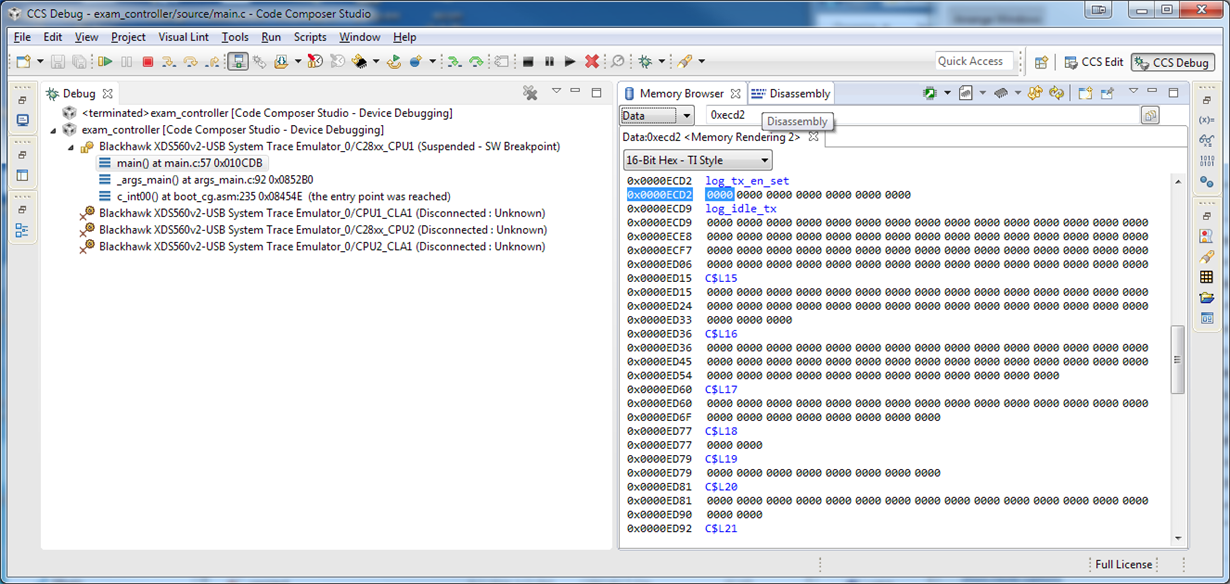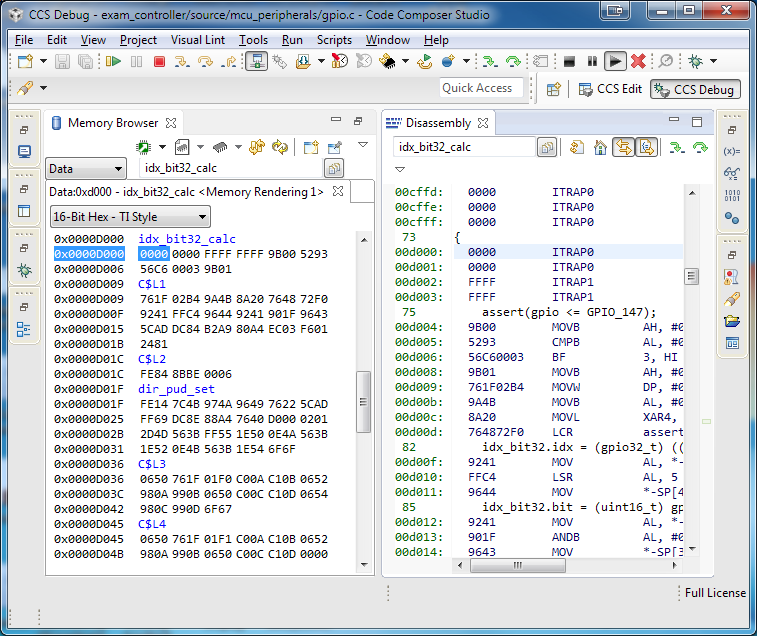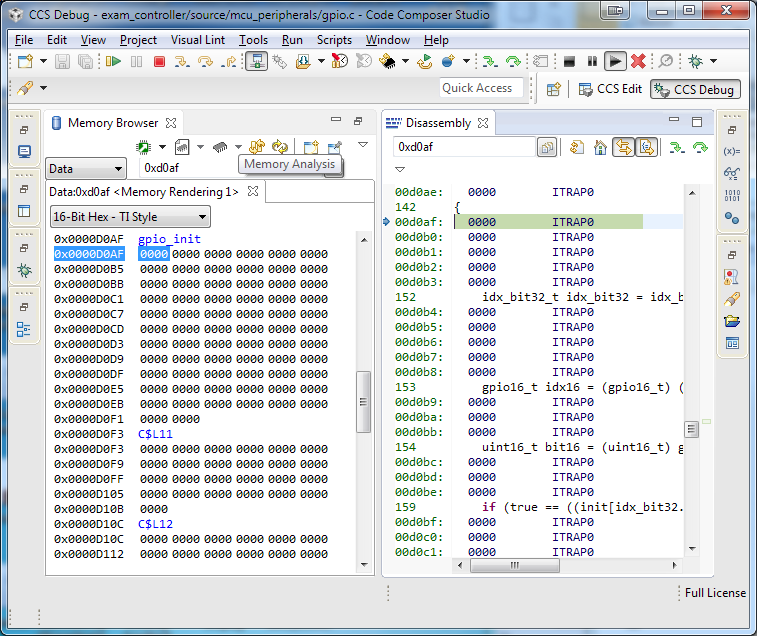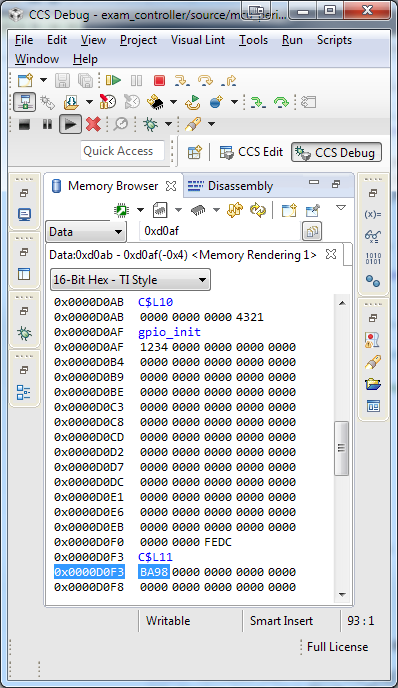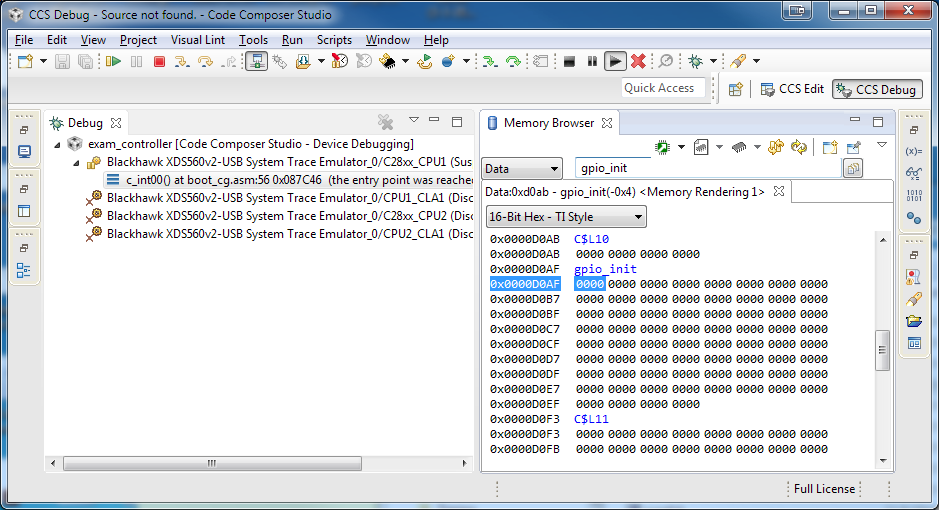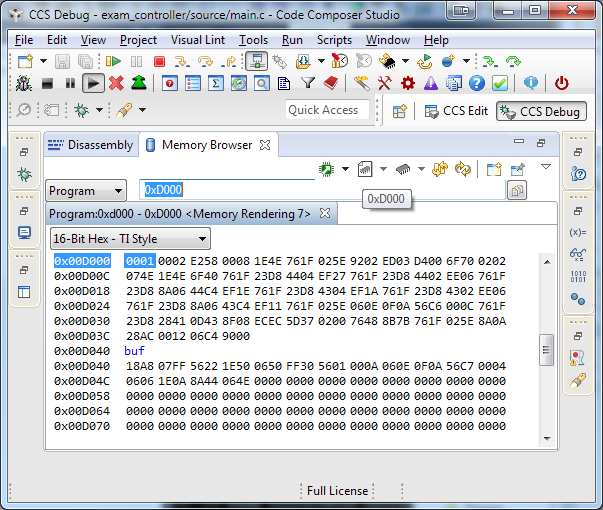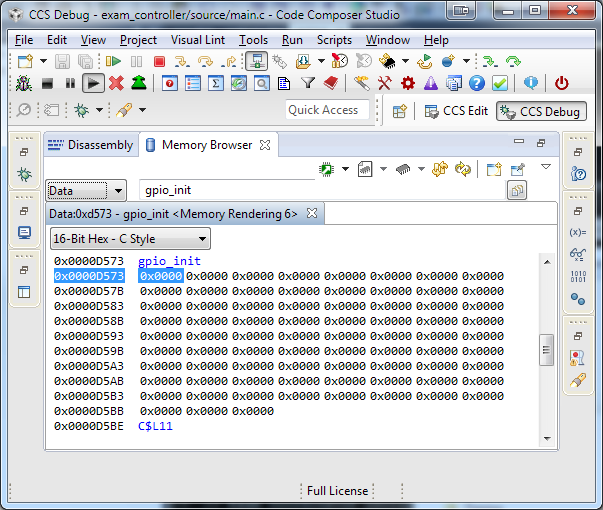Other Parts Discussed in Thread: UNIFLASH, TMS320F28377D
My program aborts on a F28377D apparently because code is not being loaded. After loading the program and breaking at the call to main(), the first function call in main() is to log_tx_en_set(). The Memory Browser is showing no code being loaded for log_tx_en_set() (see picture below). Presumably, trying to execute the invalid instructions at this location is causing the ITRAP / unplugged hardware interrupt.
Note that is a continuation of "Stack Corruption?" (e2e.ti.com/.../502147).


